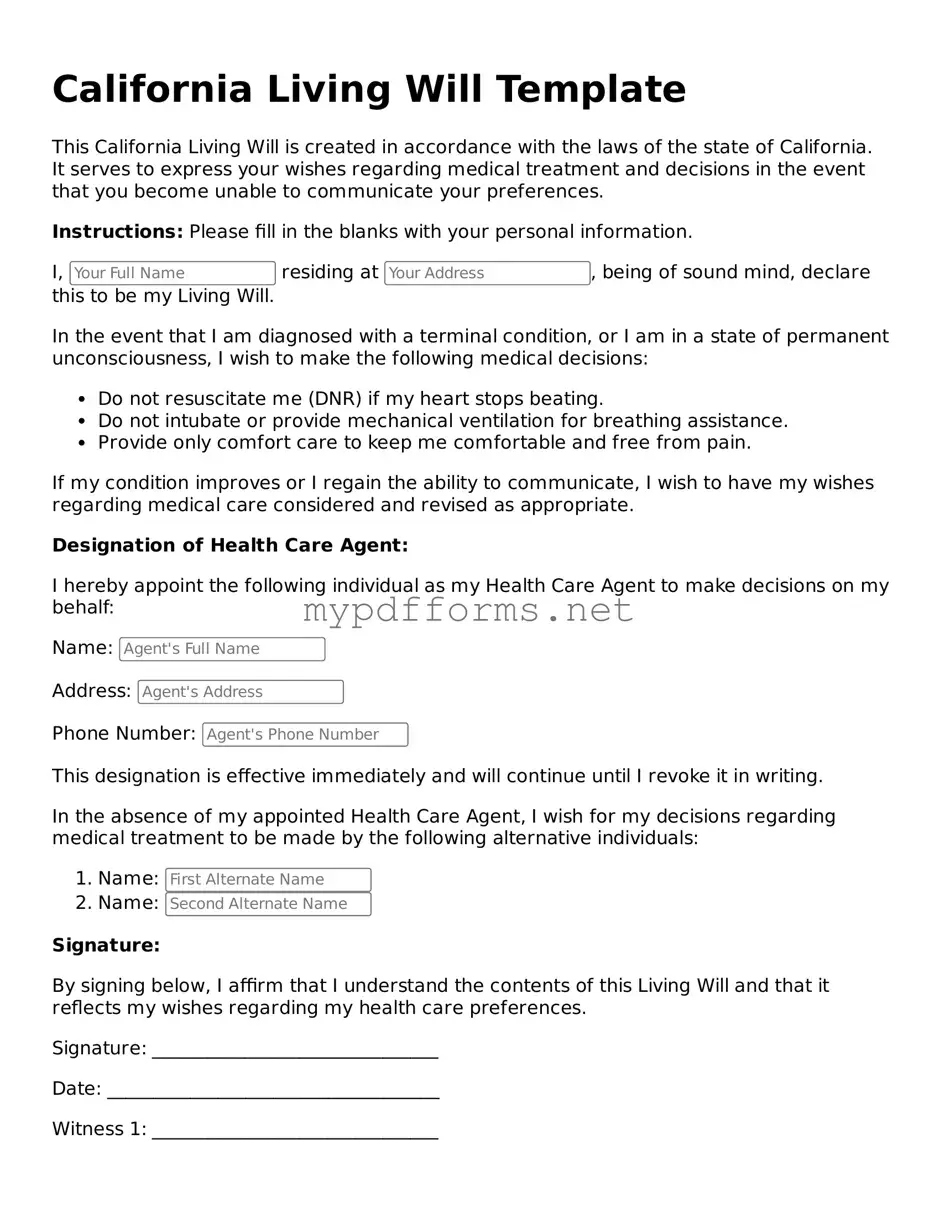Attorney-Verified Living Will Document for California
A California Living Will form is a legal document that allows individuals to outline their preferences for medical treatment in the event they become unable to communicate their wishes. This important form helps ensure that healthcare providers and loved ones understand and respect your choices regarding life-sustaining measures. By taking the time to fill out this form, you can provide clarity and peace of mind for yourself and your family during challenging times.
Take control of your healthcare decisions today by filling out the California Living Will form. Click the button below to get started!
Modify Document Here

Attorney-Verified Living Will Document for California
Modify Document Here

Modify Document Here
or
⇓ PDF
Need to check this off quickly?
Edit and complete Living Will online in just a few steps.